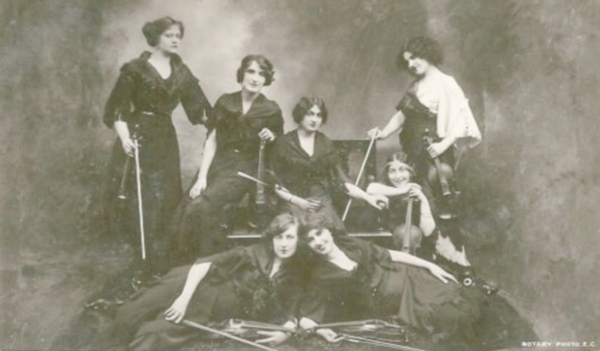Bedroll Bella by Sid Waddell (Sphere, 1973) is the story of a feisty, foul mouthed, hard drinking, 'right raver' and proud Geordie 'lass' who runs away from home in search of teenage kicks. She falls in with a bunch of 'bedrollers', itinerant hippies who drink, fight, screw and sleep rough in the ruins of Scarborough Castle by night and shoplift by day (carrying around their rolled up bedding - hence the name).
Published in the youthsploitation publishing boom, it sits alongside the works of Richard Allen and Mick Norman in depicting a world of 'knockers', 'birds' and 'having it off' in alleyways and pub car parks; a world of casual violence, with scraps with Hells Angels and rugby club types. The book was apparently barred from the shelves of WH Smith when it came out.
Bella is also a poet on the side, composing a sonnet in lipstick on a bathroom window. Like her the author also has higher literary ambitions. Naturally a visit to Whtiby entails a mention of Bram Stoker.
Other than the sexual politics, the thing that jars the early 21st century reader is its industrial background. The backdrop is the shipyards and mines of the north east, presented as being at the heart of local identity. The freaks are not middle class drop outs (as 'hippies' are usually portrayed) but have taken to the road as an alternative to dead end jobs, the dole and stifling conformity: 'She wanted faces and figures with style, animation, excitement.... anything different. There had to be a lifeline somewhere, a raft to sweep her out of boredom and the prospect of the dole'.
Class is at the heart of the novel. Bella, whose dad is a boilermaker, argues with a teacher's comments about greedy strikers: 'them and the miners only get a living wage by striking - and striking hard... So feeding me and my mother and seeing we've got shoes and coal is greed, eh, miss?' .
Spider, the main male character, is the son of a miner (like the author). When he reads in the paper about miners dying in a disaster in Poland, he is consumed with rage: 'The death of a miner is about as important as the death of a worm under a spade. Both are an occupational hazard. Self-pity welled in Spider's breast. How could society expect a pitman's son to be anything other than a dirty, sweaty, scruffy hippy? He had never known anything better. And if he followed his dad into the hole, who would have thanked him? Alf Robens? Ted Heath? Harold Wilson. No, not fucking likely. They were the coal-owners now. They didn't give a monkey's nut. Spider wanted to talk. To get some of the green bile of class hatred of his chest.' He manages this by having sex in a train toilet with the posh 'Weekend Madonna' character, a part time hippy who slums it at the weekend and then returns home in the week.
In a key section of the book Bella and co. head to the Yorkshire Folk, Blues & Jazz Festival, a real event held at Krumlin near Halifax in August 1970, reputed to have been hit by some of the worst weather even seen at a British festival. Before the rain comes down, Bella has that festival epiphany feeling: 'Bella was tripping out. She had never felt so entirely conjoined with society before. She was part of the primeval soup, and Spider was the umbilical cord stringing her to this wild, wondrous world. Being part of it was quintessence. It was not a case of wanting the kicks of drugs, music or men. It was deeper, more heady, wine, the scene was feeding her. This was the pure juice of the fruit. She was on her way to Heaven, and by Christ she was gonna be moved... Bella wanted to cry. For the first time in her life she knew why sparks like Wordsworth and Chaucer and even that maniac Swinburne, who she'd had to study for O levels, had written poetry. It was all here on the grass, naked and pulsating. The Daffodils, the Pardoners and Summoners and even the Hound of Heaven... The pale, streaked bleached look of the moorland sky and turf was enhanced by the gear the kids wore. Vests and stained blue jeans, Army surplus anoraks, nothing that quite fitted. Clothes had to hang, so that the loose slim bodies could flow along as freely as their hair swung... To be alive was very heaven'.
Bella eventually flees the freak lifestyle to return to the bosom of the close if restrictive working class community, symbolised by her first act on coming back to the city: putting on her black and white scarf and going to watch Newcastle United beat Leeds.
I believe this was Waddell's only novel, though he went on to find fame as a TV sports commentator, his name being synonymous with coverage of darts in Britain up until his death in 2012. His politics remained intact until the end - asked in 2007 to imagine 'If you'd been present as a commentator when Maggie Thatcher left No 10 for the last time, what line of commentary would you have given?' he replied: "Sooo the poor little Iron Lady ends her years of vicious tyranny sobbing in a posh car. She took the kids' milk, made the rich richer and she smashed the coal miners... what a magnificent legacy!"


























